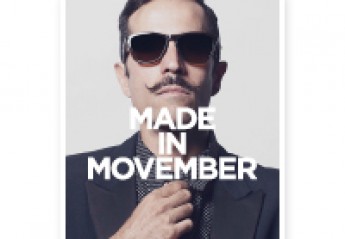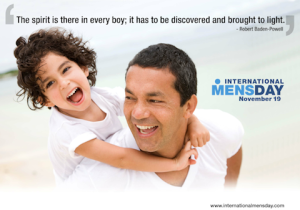Welcome to this series of articles connected to International Men’s Day (November 19) where men reflect on what it means to be male. Here we see geo being interviewed.
My son is one of my biggest role models as I’ve tried to raise him to just be himself. He inspires me with his lovely nature and great spirit.
Name: geo
Place of residence: Manchester, UK
Age: 45
Are you glad to be a man? Why (not)?
I simply accepting of my state of being and happy to be a human…
Men are at the extremes of success, on the one hand they are more likely to be directors, managers and politicians, on the other hand more likely to be homeless, have severe mental illnesses and be in prison. Why do men have such big extremes?
Maybe because we live in a Patriarchal society. And the ‘extremes’ seem a bit obvious.
All over the world, men are more likely than women to commit suicide (data). Why is this? What do you think can be done to address this?
Men seem less likely to be in tune with their emotions. And more likely to do something extreme rather than try to resolve the issues they face by responding to a situation rather than reacting.
When did you have your last check-up for prostrate and testicular cancer? Why don’t men tend to look after their health?
I check my prostrate myself every six months just to make sure there aren’t any anomalies etc…
Men seem less attuned to their bodies, biorhythms and nature.
What male role models do you have?
Myself, first and foremost. I try to be the best that I can.
My son is one of my biggest role models as I’ve tried to raise him to just be himself. He inspires me with his lovely nature and great spirit.
Kenny Dalglish as a footballer but more importantly as a man who helped carry the club during it’s darkest hours.
Muhamed Ali as a pugilist he had a strong heart and as an ambassador for humanity he’s shown his heart is huge!!!
Any ‘gentle men’ that I meet in my life inspire me to show that side of my nature.
How is it possible to address the problems that men and women face without competition between them?
Honest, open and truthful communication.
What’s your message for men for this year’s International Men’s Day?
Take care of your side of the street. Be your own hero!
If you wish to sponsor Janick who is taking part with Movember, an initiative to raise money towards combatting prostrate and testicular cancer as well as, in Poland, male depression, please go to this link. Males are invited to be be interview partners by going looking at the questions here and answering them as a comment underneath. The answers will later be published as an article.



